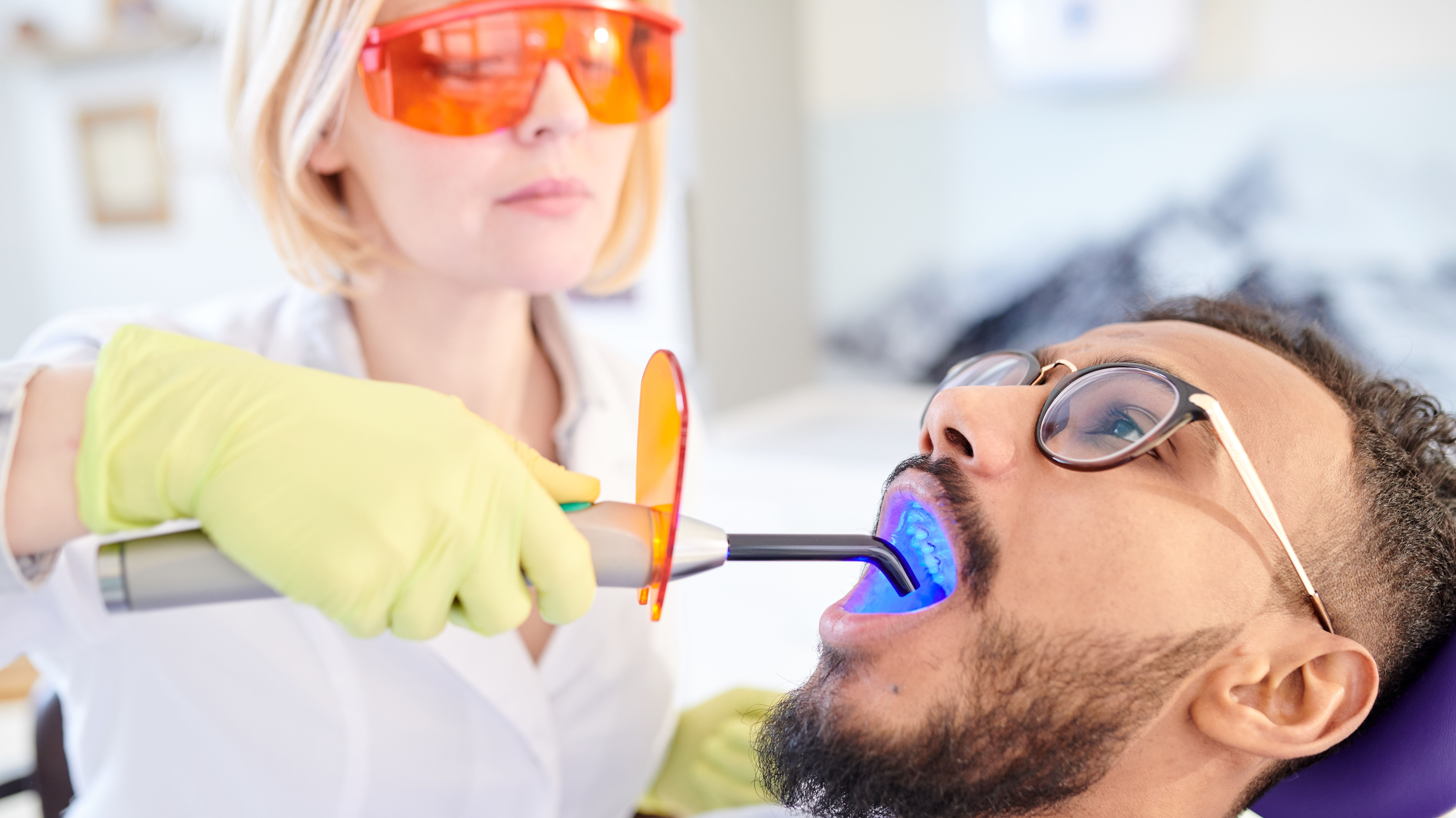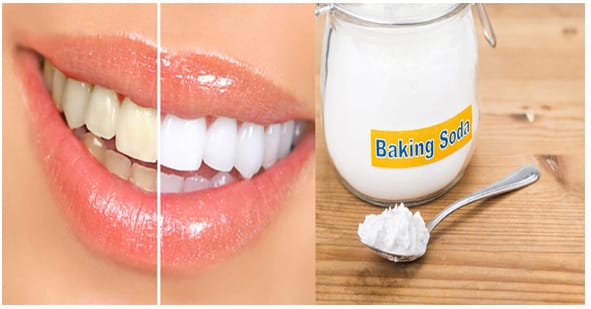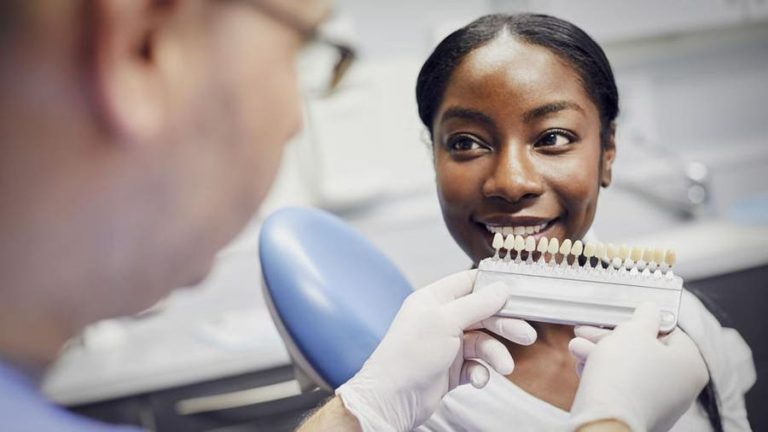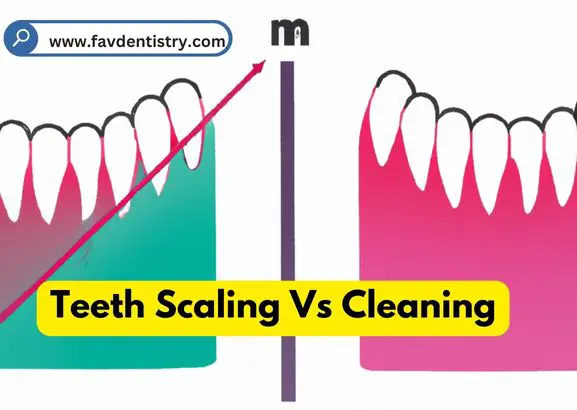Last Updated on 3 weeks by DR. ALBIN SIPES
When your teeth are professionally cleaned, also known as a scale and polish, you may experience discomfort afterward. It does not matter; it will take one or two days to recover. However, if your teeth continue to hurt after a scale and polish, there may be an underlying problem.
Does It Hurt After a Scale And Polish?
The short answer is no. It’s generally not the heart. A scale and polish is a standard dental procedure that removes plaque and tartar from the teeth. It is usually done in conjunction with routine cleaning.
However, some people may experience minor discomfort, especially with sensitive teeth. The dental surgeon will use scaling instruments to remove the plaque and tartar from your teeth. You may feel some pressure or vibration, but it should not be painful.
After the procedure, your teeth may feel slightly sensitive to hot or cold beverages for a day or two. If you have any concerns or continue to experience pain after a scale and polish, contact your dentist immediately.
WHAT YOU DO AND WHAT YOU NOT DO AFTER SCALING OF TEETH
If you’ve ever had a scale and polish at the dentist, you know that your teeth can feel pretty sensitive afterward. It’s also pretty cool and usually takes a day to recover. In that time, you can do a few things to remove the discomfort.
First, avoid hot or cold drinks for a little while after your appointment. Stick to room temperature or cooler beverages until the sensitivity subsides. You should also avoid hard or crunchy foods as they aggravate your teeth.
If the sensitivity bothers you, take ibuprofen or another over-the-counter pain reliever. You can also use a desensitizing toothpaste like Sensodyne or Colgate Sensitive Pro-Relief. These tubes of toothpaste contain ingredients that help block out pain sensations.
If your teeth still hurt after a few days, make an appointment with your dentist to have them check it out. In most cases, the sensitivity will go away on its own, but if something else happens, your dentist will be able to identify it and treat it accordingly.
How to Relieve Pain After Teeth Cleaning
Most people have laziness about going to the dentist. Even though you know it’s vital for oral health, the thought of someone poking around in your mouth is enough to make anyone squirm. And once the cleaning is over, you can only think about how much your teeth hurt.
But don’t worry. There are ways to relieve pain after teeth cleaning. Here are a few tips:
1. Rinse with warm salt water – This will help soothe any inflammation and also help remove any debris that may be stuck in your teeth.
2. Take an over-the-counter pain reliever – If the pain is horrible, take some ibuprofen or another anti-inflammatory drug. Just be sure to follow the directions on the bottle. 3. Suck on ice chips – The cold temperature can help numb the pain in your teeth and gums.
4. Use a topical numbing agent – You can find these at most pharmacies. They come in a gel or spray form and work by temporarily numbing the area they’re applied to. Just be sure not to use too much, or you could have an upset stomach.
Teeth Cleaning Too Painful
If you’re among the many people who find teeth cleaning too painful, you’re not alone. A recent survey found that nearly half of adults say they avoid the dentist because it is too bitter. There are a few reasons why teeth cleaning can be painful, and you can do a few things to help ease the pain.
One reason teeth cleaning can be painful is because of the type of toothbrush you’re using. If you’re using a hard-bristled brush, it can damage your gums and make them more sensitive. Instead, use a soft-bristled brush that will be best on your gums.
Another reason teeth cleaning can be painful is because of plaque buildup. Plaque is a bacteria. If plaque isn’t removed, it can harden into tartar, which is even more challenging.
Tartar can cause gum disease and tooth decay, so it’s essential to remove it regularly. The best way to remove plaque is to brush twice daily with fluoride toothpaste and floss daily. If you find that brushing and flossing aren’t enough to keep your mouth healthy, you may need to see your dentist for professional cleanings.
Professional cleanings are much more effective than at-home care in removing plaque and tartar buildup.
Severe Toothache After Deep Cleaning
You must see your dentist immediately if you experience a severe toothache after a deep cleaning. Deep cleanings are a standard dental procedure that helps remove plaque and tartar from your teeth. However, the process can sometimes irritate the nerves in your teeth, causing severe pain.
If this happens, your dentist will likely recommend a root canal to relieve the pain.
Gum Pain After Dental Cleaning
After having your teeth professionally cleaned at the dentist, you may experience some gum pain and tenderness. This is not serious and will disappear within a few days. You can take a few steps to remove the discomfort in that time.
Rinse your mouth every day, two times with warm salt water. This is the best way to reduce swelling and inflammation. You can take slight pain remover medicine if needed.
Be sure to gently brush and floss your teeth for a few days after cleaning. If the pain persists over a few days or is severe, contact your dentist. They may need to adjust your cleaning technique or prescribe antibiotics if an infection occurs.
Severe Pain After Scaling And Root Planing
Most people who have scaling and root planning done to treat gum disease don’t have any pain afterward. But, a small number of people experience some discomfort, ranging from mild to severe. If you’re one of those people, there are a few things you can do to ease the pain.
Ibuprofen or acetaminophen groups medicine can help over-the-counter pain relieves. You can also use a numbing gel like Orajel or Kanka on your gums before the procedure, which may help reduce pain afterward. If those measures don’t work, your dentist may prescribe a more potent pain reliever for you to take after the procedure.
Call your dentist if you’re still in pain after a few days. There could be an infection or another problem that needs to be treated. In most cases, though, scaling and root planing are not painful and do not require any special care afterward.
Teeth Hurt After Cleaning? What Reddit Users replied
If you’re one of the many people who experience pain in their teeth after getting them cleaned at the dentist, you’re not alone. This is a common phenomenon that has been discussed on Reddit. For this happening, There are some reasons.
Cleaning can sometimes remove a protective layer of tooth enamel, exposing the sensitive dentin underneath. This can cause pain, especially if your teeth are already sharp. Another theory is that the high-powered water jets used during dental cleanings can sometimes irritate the nerves in your teeth, causing pain and discomfort.
Whatever the reason for your post-cleaning tooth pain, you can do a few things to help ease it. First, try rinsing your mouth with warm salt water immediately after cleaning. This will help soothe any irritated nerves and reduce inflammation.
You can also take an over-the-counter anti-inflammatory like ibuprofen to help with any pain and swelling. Finally, avoid eating or drinking anything too hot or cold for at least an hour after cleaning to give your teeth time to adjust to their regular temperature sensitivity level.
CHECK HERE REDDIT USER INFORMATION
Tooth Pain After Deep Cleaning
If you’re experiencing tooth pain after a deep cleaning, a few things could be causing it. It’s possible that your teeth were sensitive, to begin with, and the deep cleaning aggravated them. It’s also possible that you have an infection or abscess in your tooth that was uncovered during the cleaning.
If the pain is severe, it’s best to see your dentist right away so they can determine the cause and provide treatment.
Teeth Sensitivity After Scaling
If you have sensitive teeth, you may experience discomfort after having your teeth professionally cleaned. This is because cleaning can remove a thin layer of tooth enamel, exposing the underlying dentin. Dentin is a softer tissue than enamel and is more susceptible to stimuli, such as hot, cold, or sweet foods and drinks.
You can do several things to minimize discomfort after cleaning your teeth. First, use toothpaste for sensitive teeth. These products contain ingredients that help to block the sensation of pain.
Second, avoid eating or drinking anything hot or cold for at least an hour after your appointment. If you must eat or drink something hard, do so slowly and carefully. Third, try not to brush too vigorously immediately after your cleaning.
Fourth, use a fluoride mouthwash to help strengthen your tooth enamel and reduce sensitivity. If you experience persistent sensitivity after cleaning your teeth, talk to your dentist about other treatment options that can help relieve discomfort and protect your smile.
How Long Do Teeth Hurt After Scale And Polish?
It is not uncommon for teeth to be sensitive after a scale and polish. This is because the procedure can remove many protective tooth enamel. To help ease any discomfort, avoiding hot or cold drinks and foods for at least 24 hours is recommended.
Over-the-counter treatments can also help reduce sensitivity, such as desensitizing toothpaste or fluoride mouthwash. If the sensitivity persists for over a few days or is particularly severe, it is best to consult your dentist.
Why Do My Teeth Hurt After a Scale And Polish?
If you’ve ever had a professional tooth cleaning, also called dental scaling and polishing, you may have experienced some sensitivity or pain afterward. Here’s what you need to know about why your teeth may hurt after a scale and polish and how to relieve the discomfort.
The first thing to understand is that when plaque and tartar are removed from your teeth, they can leave temporary microscopic holes in the enamel. These holes are not visible to the naked eye but can be exposed when hot or cold food or drinks touch them. That’s why your teeth may feel more sensitive than usual for a day or two after having them cleaned.
To help relieve the discomfort, avoid eating or drinking anything extremely hot or cold for 24 hours after your appointment. You can also take an over-the-counter pain reliever like ibuprofen if needed. If your sensitivity doesn’t go away after a few days or worsens, contact your dentist for further guidance.
How Long Are Teeth Sensitive After Scaling?
If you have just had teeth scaling, you may wonder how long your teeth will be sensitive. The answer can vary from person to person, but typically, teeth are most susceptible immediately after the scaling procedure. This sensitivity can last for a few days to a week.
In some cases, people may experience sensitivity for up to two weeks. If your teeth are still sensitive after this time frame, it is best to consult your dentist to see if there is another underlying issue.
Conclusion
After getting a scale and polish at the dentist, some people may experience sore teeth. It’s because removing tartar can be abrasive on the enamel. The good news is that this soreness is usually temporary and will go away within a few days.
In the meantime, over-the-counter pain relievers can help to ease any discomfort.
Related Article – Does teeth whitening gel expire







